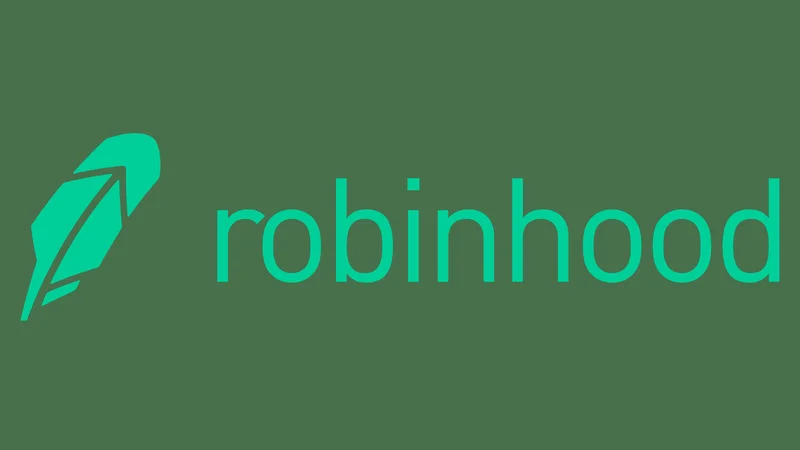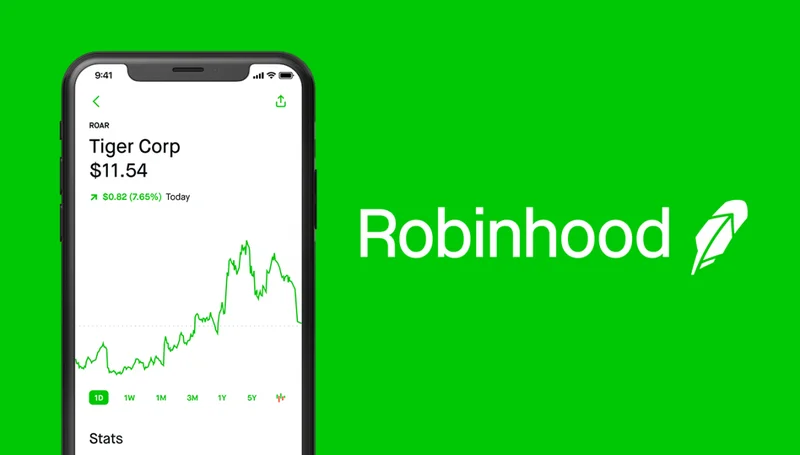Robinhood's Next Chapter: Decoding the 2025 Vision and What It Means for the Future of Investing
It’s easy to get lost in the numbers, and with Robinhood in 2025, the numbers are absolutely staggering. A stock price that has skyrocketed nearly 300% this year. An induction into the prestigious S&P 500. A platform now safeguarding over $300 billion in assets for almost 27 million people. From the outside, it looks like a rocket ship that finally found its fuel, a spectacular recovery from the brink of irrelevance just a few years ago. It's a performance that has many investors asking, Up 288% in 2025, Is Robinhood Stock Still a Buy Heading Into 2026?
But I want you to look past the ticker symbol for a moment. Forget the breathless headlines about all-time highs. The real story here, the one that truly matters, isn't about a stock price. It's about a fundamental rewiring of our relationship with finance. What we’re seeing isn’t just a company’s comeback; it’s the blueprint for a new kind of financial institution, one built not on the traditions of Wall Street, but on the logic of the internet. And if you’re not paying attention, you’re missing one of the most important technological and cultural shifts of our time.
Beyond the Meme Stock Mayhem
Let’s be honest. For years, the name “Robinhood” was synonymous with chaos. The 2021 meme stock frenzy—the GameStop saga—painted the platform as a digital casino, a haven for speculation. Critics saw it as a toy, not a tool. And when the crypto market imploded in 2022, dragging Robinhood’s stock down by a brutal 90%, it felt like the final, damning verdict. The disruptor had been disrupted.
But that’s a surface-level reading of history. What I saw, even then, was something different. That period of intense volatility wasn't the company's failure; it was its baptism by fire. It was the moment millions of people, for the first time, felt empowered to participate in markets they’d always been locked out of. It was messy, sure, but so was the early internet. It was a chaotic, democratic, and absolutely necessary explosion of access.
The subsequent crash taught Robinhood a crucial lesson, one that’s now defining its entire strategy. Depending on the whims of a single, volatile asset class—whether it was meme stocks or a `bitcoin robinhood` trading frenzy—was a recipe for disaster. You can see the scar tissue in their latest earnings. While the company is posting record profits, revenue from crypto trading has actually fallen. Some analysts see that as a weakness. I see it as the most bullish signal of all. It’s proof that the company is no longer a one-trick pony. It’s building an ark, not just a speedboat. So, if the engine isn't just crypto anymore, what exactly is powering this incredible machine?
The Architecture of a New Financial OS
This is the part that gets me excited, the part that reminds me why I got into this field in the first place. Robinhood is quietly assembling the pieces of something far more ambitious than a simple `robinhood trading` app. It’s building a unified financial operating system for a new generation.

Think about it. The massive growth in `robinhood gold` subscribers isn’t just about a premium feature; it's about creating a core, integrated experience. The new partnership with Kalshi to launch prediction markets for sports isn't a gimmick; it’s a brilliant way to engage users with concepts of risk and probability in a domain they already understand. The introduction of stock tokenization in Europe—in simpler terms, it means representing a share of a stock like `robinhood tsla` or `robinhood nvda` as a digital token on a blockchain—is a foundational step toward a truly global, 24/7, and frictionless market.
When I saw the announcement about tokenization, I honestly just sat back in my chair for a moment. This isn't just adding another product, it's about fundamentally changing the plumbing of the financial world, making assets more divisible, accessible, and transferable than ever before—and the sheer audacity of building this while simultaneously scaling their core brokerage and launching a `robinhood credit card` is the kind of thing that signals a true paradigm shift. This isn't just a company adding features. This is a company building a platform, an ecosystem where your savings, your investments, your spending, and even your speculative bets can all live and interact seamlessly.
It's the classic technology playbook, moving from a single-purpose product to an integrated platform. It’s the difference between a flip phone that only makes calls and a smartphone that runs your entire life. Robinhood is building the smartphone for your money. The question is no longer just "what is Robinhood?" but "what can't it become?"
The Human Element
Of course, with this kind of power comes immense responsibility. When you have 26.7 million funded customers, you're not just a company anymore; you're a piece of critical infrastructure. You're the custodian of dreams, of down payments for houses, of retirement funds, of a generation's first foray into building wealth. The sleek, game-like interface that made `robinhood investing` so accessible also carries the burden of ensuring users understand the risks they're taking.
This is the ethical tightrope every great technology company must walk. How do you empower people without encouraging recklessness? How do you democratize access to complex tools like options and futures while providing the education necessary to use them wisely? The company's future success won't just be measured in its stock price or its user growth, but in the long-term financial health of the millions who trust its platform.
But I remain an optimist. I believe that access, paired with education, is always better than a walled garden. For decades, legacy firms like `Schwab` and `Fidelity` served a specific demographic, speaking a language that alienated millions. Robinhood broke that mold. It proved that finance could be intuitive, accessible, and even engaging. Now, the challenge is to mature alongside its users, evolving from a gateway for first-time traders into a lifelong partner for wealth creation. What does a world look like where a `robinhood roth ira` is as common as a savings account? What happens when investing becomes a native, digital-first experience for an entire generation? We're about to find out.
This Isn't a Comeback; It's a Rebirth
Forget the narrative of a fallen star making a comeback. That’s not what’s happening here. This is a metamorphosis. The Robinhood of 2021, the company that rode the meme stock wave, is gone. In its place is something far more durable, more integrated, and infinitely more ambitious. The sky-high valuation isn't about today's profits; it's a bet on the creation of a comprehensive financial ecosystem that could become the dominant platform for the next 50 years. We're not watching a stock recover. We're watching the foundation of a new kind of bank being laid, one pixel at a time.
Related Articles
Robinhood's Grand Vision: What It Means for the Future of Your Money
Something fundamental shifted in Singapore last week. It wasn't an earthquake, but for the tectonic...
